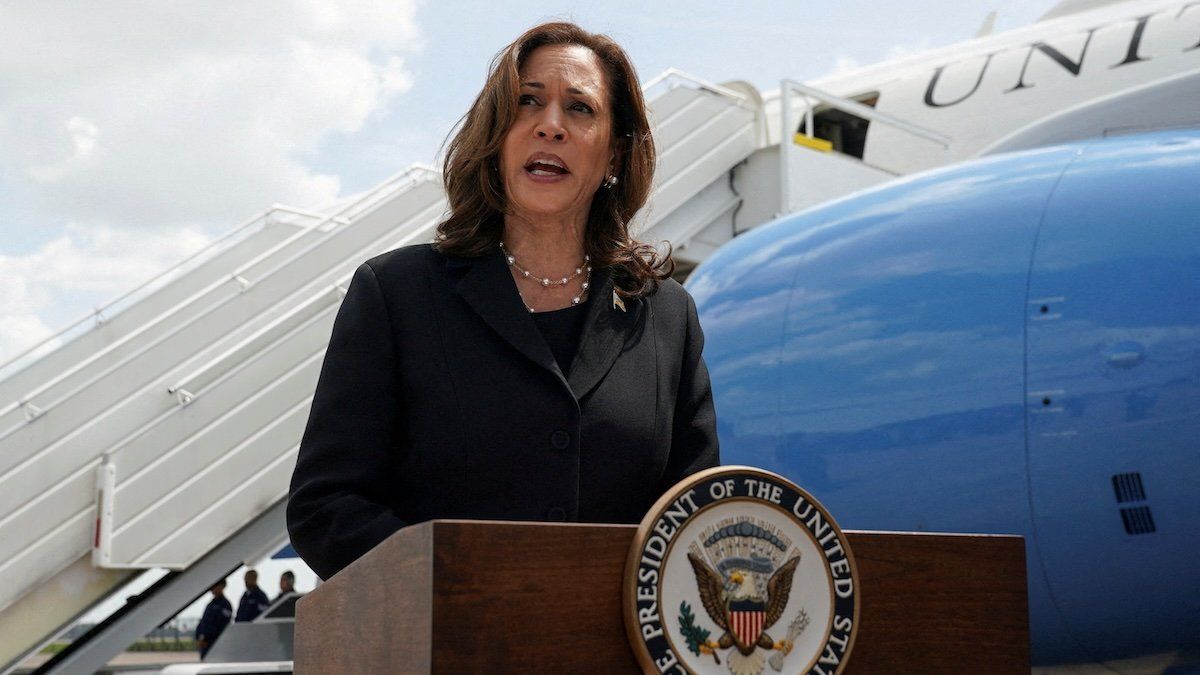The global market meltdown of the past few days reveals fears that the US economy is headed for recession. Over the past three trading days, the S&P 500 has fallen by 6.3%, and the tech-heavy NASDAQ has dropped 8.2%. Early Tuesday, markets seemed to have steadied, but volatility remains a concern. There are three reasons why this selloff could be bad news for the surging political fortunes of presumptive Democratic Party presidential nominee Kamala Harris.
First, if the scary market news continues, it could shift media focus away from Harris’ current polling momentum, her vice-presidential choice, and the Democratic Convention later this month.
Second, Harris is the incumbent vice president, and Republican nominee Donald Trump can try to portray her as an integral part of an incompetent Biden team.
Third, polls have consistently shown that voters favor Trump on questions of the economy, and Harris opens her candidacy there at a disadvantage. If market sell-offs continue to provoke talk of a US recession, Trump’s advantage might grow.
Lots of caveats apply. The meltdown might not last long. It could make it easier for the Federal Reserve to justify a larger-than-expected interest rate cut to boost economic activity less than two months before Election Day. That could certainly lift consumer spirits and help Harris.
But for a candidate who has pulled Democrats back into a toss-up race with momentum continuing to build, any major media distraction is unwelcome.
